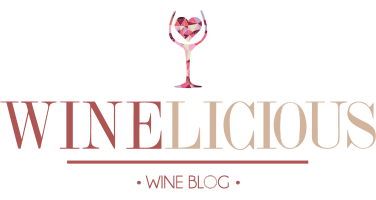
25 Jun Wine and Society: Corporate social responsibility in wine sector
The idea that businesses should develop a positive relationship to the society in which they operate, promoting a balance between profit-making activities and activities that benefit society is a challenge for business and a critical factor in their ability to continue to operate efficaciously. Note that social responsability is also progressively being used as a measure of their overall performance.
In this paper, we are restrain to wine sector and analyse how wineries can have a significant role in the development of wine regions, boosting the local economy andpreserving the wine cultural heritage. Looking at the successful projects, theirs corporate structures and extracting some directives for the sector is our challenge.
Social Responsibility: Guiding Principles and Priorities
We start from the perspective that social responsibility means fostering the local economy and promoting wine culture, responding to the new consumers ambition who nowadays seek consume and support companies that have a structured and settled social role. Thus, it is crucial wineries be committed to being a positive force in theirs local communities, adopting a Corporate Responsibility Program which identifies ways they can improve their contribution to theirs communities, manage environmental and social risks, and drive sustainability.
The Corporate Responsibility Program should to be focused on strategic priorities, like: Sustainable Sourcing, Responsible Consumption and Community Engagement.
Sustainable Sourcing
The future is reliant on sustainable communities whereby it essential wineries to be committed to driving sustainable supply and sourcing initiatives throughout their supply chain. So, it is important to estabilish an “environment policy” which outlines the commitment to understanding and minimising any adverse impacts their operations and products have on the environment. An environmental monitoring system which reports anually metrics such as energy efficiency, water efficiency, energy consumed, water consumed, carbon emissions, solid waste generated and solid
waste to recycling is adviced to adopt because foment transparency and help wineries manage better their business.
To ensure the company’s growth, wineries have to be focus in their sustainability strategy, related to economic aspects, around some pillars like: supply chain,product and customers.
In respect of the first pillar, companies must be aspire to be a strategic partner to their suppliers, through relationships based on transparency and trust, encouraging value creation and sustainability along the supply chain. Another important aspect is be committed to preventing slavery and human trafficking in corporate activities and global supply chain.
The second pillar is offer excellent products that provide the best experience to consumers, satisfying their tastes and expectations and providing innovative solutions to consumers’ increasingly demanding needs. Another relevant point is be committed to ensuring a safe, sustainable and timely supply of quality products to customers, creating a “product and safety policy” in order to achieve best practice and implement process improvements. Beyond improve existing processes by bench-marking against other leading beverage companies develop a consistent risk management strategy to ensure that finished product adheres to relevant regulatory requirements and product quality is continually improved (this also identifies the presence of any allergens to ensure that wines containing these materials are appropriately labeled).
Lastly, the third pillar is based on the belief that customers are essential for the development of the company’s business strategy and are part of its Sustainability Strategy. The winery need to aspires to create strategic alliances with its customers, building relationships based on trust and mutual growth. Should be strengthened to meet the demands and requirements of clients, by knowing their particular needs and efficiently managing the logistics chain and also look for opportunities for knowledge transfer on good commercial and sustainable practices.
Responsible Consumption
Wineries play a relevant role to consumer information, they have a directly or online contact with the public, so they have the responsability of make available evidence- based information (to secure credibility and facilitate dialogue on wine, health and social aspects), to help consumers make responsible choices compatible with a healthy lifestyle. It is proper to train professionals to improve knowledge and competences on wine, health and social aspects as well as promote and implement self-regulation practices to ensure responsibility in the commercial communication of wine (importance of Art de Vivre Campaigns, inspired by the culinary and cultural heritage of wine, promote moderation and responsibility in wine drinking as a cultural and social norm, inpiring well-being).
Support programs such as “Wine in Moderation” and incorporate these values into their philosophy and approach to customers, fighting against alcohol related harm and promoting responsible business practices is more than expected, it is a compromise.
Community Engagement
Be committed to creating value for the society and environment in which they operates, trying to be a contribution to the development and quality of life of the surrounding communities. Initiatives to support human capital formation (education of the most needy young people or the children of the vineyard workers through scholarships); social projects (construction of social houses, schools and libraries); improvements in road infrastructure, public spaces and signage, to promote tourism and the wellbeing of its residents are rewarding.
Partneship between university or research centres and wineries can become a win-win for both wine business students and local wine businesses. Colaborate in the education and research sector is a investment for wineries because they will benefit from the research results and students can bring a new perspctive and colaborate to refresh strategy which included a new brand proposition, digital wine marketing and ecommerce strategy, label and retailing recommendations.
Small businesses can look at these examples to inspire themselves and take the first step in what is available to them, small gestures, but valuable to a more prosperous community.
A new perspective
At the presente moment we are redefining the meaning of business success. Companies have come to see more than profit, they also seek to incorporate values and environmental and social solutions. Glance at the global market and realize that a new business has already emerged. A new movement that rewrites the logic inherited from the Industrial Revolution and begins to assume social, environmental and political commitments. Companies are the second most common way of organizing among people, they are behind only families. These are a reality very close to us so we are called to do more for the community. The changes begin slowly and start with few, but it is indisputable that this is a movement that has come to stay. This awareness is slow, but it is already beginning to have its direct impact on the market and the role of entrepreneurs.
This movement begins around the world because society shows a desire for change. We can not be content with models that have persisted for centuries and do not solve our problems. The impulse is being given by consumers and companies perceive it
and begin to adapt the interests of the shareholders to these new yearning and the private sector has increasingly defended the best socio-environmental and political practices.
The changes are largely achieved through passing the word, this energetic flow of diffusing the idea, where diverse seeds are planted in their local context and that together transform the whole. Groups that seek to catalyze this change in the genetics of the market. There is an awareness that arises out of need, insatiation, the desire to be right, to be useful, to perform an activity with a greater purpose, which is not imposed by force, but by the benefits it promotes.
In the past we believed that public goods could only be created by the state. At a later point, we went on to say that NGOs could do it too. Now we see that companies and the market can do the same. It is possible to achieve justice, equity and public goods through them. Many people think that social ills come from entrepreneurship, but the solutions can also come from it.
Companies with social, environmental and political commitments are valued by consumers. Companies that go beyond the normal exercise of their activity and bring relevant content, that add value, that have a soul, are more than a trend, are a social need.
For new companies, one possibility is to think about offering a disruptive service. One innovation is not necessarily to build something extraordinary since the principle. Disruptive products and services show us this. These begin as a solution for a public that did not have access to the goods and sevices offered by companies already operating in the market and this solution hardly starts in a genial way, but in fact with great potential for improvement and with the passage of time conquers its market share and one day dominates the market because it becomes optimum, the perfect solution. An innovation that creates a new market, replacing the already established market.
A new approach to the market, bringing close to a public that previously did not consume wine because they were not represented in the approach made by the wineries already present in the market is a possibility that opens up to the new players in the market. Establishing a closer approach, more interactive, more informative, demystifying and popularizing wine culture is a starting point for building a whole business and marketing strategy. In other words, from the marketing point of view, the strategies adopted must be based on a relationship of trust and transparency, in what the company can actually do for the consumer. Adopt strategies that have meaning for the consumer and bring something new. It is necessary to communicate with soul (by soul we mean the combination of time, energy, love, authenticity and consciousness). After all, companies are made of humans for humans. Share passions, offer their best and let love grow, this energy comes back and the system feeds itself, bringing benefits to all involved (1).
Its critical to allocate resources to generate a greater impact on the social life in which company is inserted and that allows it to develop prosperly and truly connected with the community, a new form of interaction, closer and concious interection.
Conclusion:
Note that this “corporate citizenship” can mean incurring short-term costs that do not provide an immediate financial benefit to the company, but instead promote positive social and environmental change, which will be valued by consumers and will tend to be reflected in sales. The social and environmental responsability is valued by consumers and stakeholders, so it is meaningful and relevant make available the information about the developed projects to make known and create a positive impact, establishing bonds of trust.
(1) Love, love your consumers, cherish your well-being, cultivate positive attitudes. What you cultivate is what you get back from your customers. Be authentic, show your qualities, the contributions which you can offer to consumers and the society in which you act. Show your value, what is your truth, what makes you unique in the world. Give your time, it is a sign of respect and fundamental ingredient to build good relationships and perform well. Brands will be stripped down to their essential parts, their narratives made simpler and more transparent. Honesty will reign and successful branding will have fewer tricks and more truth.
Written by Natália Andrade Viana and Ismar Pereira S. Filho










